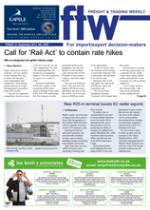South Africa rates number 52
out of 144 countries in global
competitiveness according to
the Global Competitiveness
Index 2012/13, published by
the World Economic Forum
(WEF) – a document that has
been assessing 12 factors of
competitiveness since 2004.
Each year the WEF
analyses institutions,
infrastructure, macroeconomic
climate, health and education,
higher education and training,
efficiency of the commodities
market, efficiency of the jobs
market, the financial market,
availability of technology,
size of the market, business
sophistication, and innovation
of the 144 countries.
This has been a relatively
stable positioning for this
country, having ranked at 50
out of 142 countries in 2011/12
and 54 out of 139 in 2010/11.
SA remains the highest-ranked
country in sub-Saharan Africa
and the third-placed among
the Brics (Brazil, Russia,
India, China, SA) economies.
Said the WEF, SA benefits
from the large size of its
economy, particularly by
regional standards (it ranks
25th in the market size
pillar). It also does well on
measures of the quality of
its institutions and on factor
allocation, such as intellectual
property protection (20th),
property rights (26th), the
accountability of its private
institutions (2nd), and its
goods market efficiency
(32nd).
Particularly impressive
is our financial market
development (3rd), indicating
high confidence in SA’s
financial markets at a time
when trust is returning only
slowly in many other parts of
the world.
We also do reasonably well
in more complex areas such
as business sophistication
(38th) and innovation (42nd),
benefiting from good scientific
research institutions (34th) and
strong collaboration between
universities and the business
sector in innovation (30th).
These combined attributes,
according to WEF reckoning
– and no doubt also of all our
readers – make SA the most
competitive economy in the
region.
However, in order to further
enhance competitiveness, the
country will need to address
some weaknesses.
We rank 113th in labour
market efficiency (a drop
of 18 places from last
year), with rigid hiring and
firing practices (143rd), a
lack of flexibility in wage
determination by companies
(140th), and significant
tensions in labour-employer
relations (144th) the
contributory factors.
In addition, SA’s
infrastructure, although good
by regional standards, requires
upgrading (63rd) – which
in physical terms may be
assisted by the government’s
multi-billion infrastructure
development programme.
The poor security situation
remains another important
obstacle to doing business
in SA. The high business
costs of crime and violence
(134th) and the sense that the
police are unable to provide
sufficient protection from
crime (90th) do not contribute
to an environment that fosters
competitiveness.
Another major concern
remains the health of the
workforce, which is ranked
132nd out of 144 economies
– the result of high rates of
communicable diseases and
poor health indicators more
generally.
At number 52 SA is the
best-ranked, but how do we
compare to other sub-Saharan
African states?
There are only six of these
states in the index’s Top 100.
They are, SA (52) along with
some surprises – Rwanda (63),
Botswana (79), Namibia (92),
Gambia (98) and Gabon (99).
Looking at the 15 member
states of the Southern African
Development Community
(SADC) they are ranked:
Angola (not rated), Botswana
(79), Democratic Republic
of the Congo (not rated),
Lesotho (137), Malawi (129),
Mauritius (54), Mozambique
(138), Namibia (92), Seychelles
(76), SA (52), Swaziland (135),
Tanzania (120), Zambia (102),
Zimbabwe (132). Madagascar
(130) has its membership
currently suspended after the
2010 coup d’état.
SA stable at 52 in global competitiveness index
21 Sep 2012 - by Alan Peat
0 Comments
FTW - 21 Sep 12

21 Sep 2012
21 Sep 2012
21 Sep 2012
21 Sep 2012
21 Sep 2012
21 Sep 2012
21 Sep 2012
21 Sep 2012
Border Beat
16 Apr 2025
